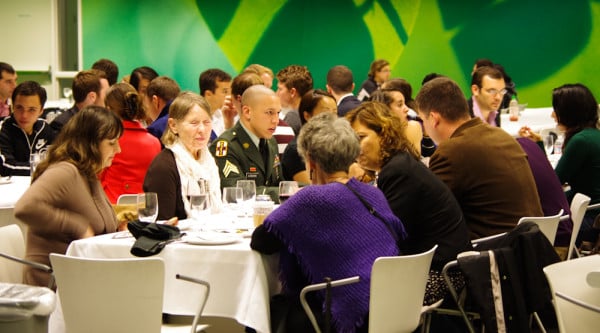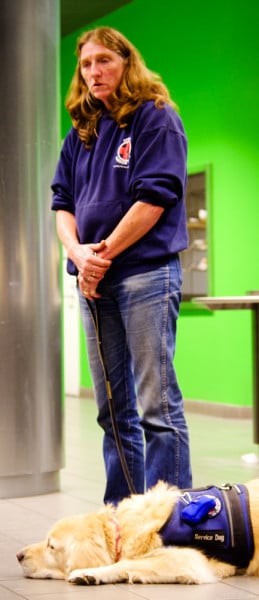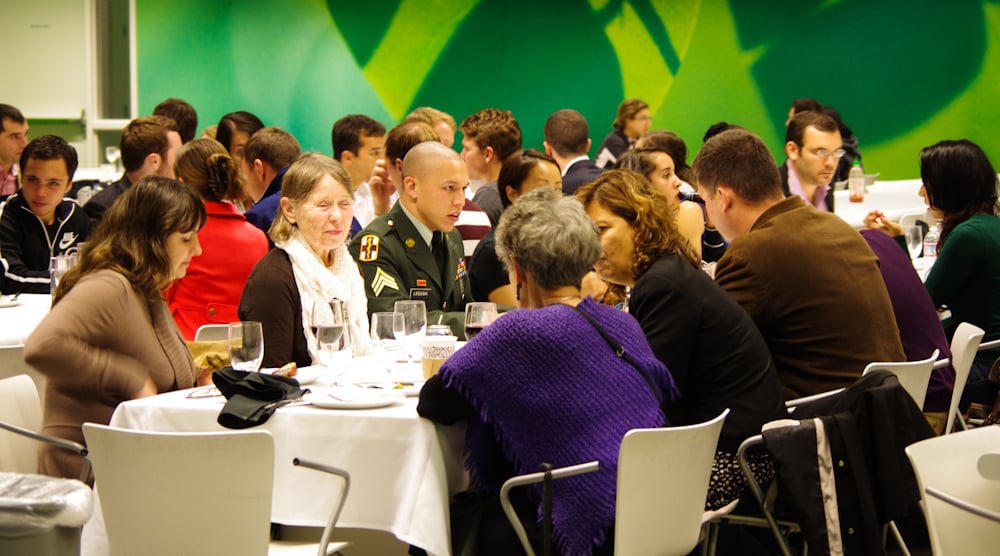Stanford commemorated Veterans Day with a series of small events highlighted by the 2013 Veterans Day Dinner at the Clark Center on Monday night.

“[Veterans Day] is not typically a day that [veterans] have big events on — usually people who are not military, but have a family member in the military, are the ones that typically organize events,” explained Zachary Scheel MBA ’13 M.S. ’14, who participated in the ROTC at Duke University and was a Navy Ensign. “It’s kind of a weird day for us, because every day is Veterans Day for us, essentially. You never really stop being a veteran of the Armed Services.”
Matthew Colford ’14, who helps lead campus veteran outreach through the Haas Center, said that like in previous years, a banquet was organized for Veterans Day. The event was open to all members of the Stanford community.
“By virtue of the fact that we don’t have an on-campus ROTC program,” Colford said, “we sent out an announcement about a Veterans Day banquet, inviting everyone from the community to come to meet veterans.”
The speaker at this year’s dinner was Mary Cortani, the founder of Operation Freedom Paws, a non-profit that trains veterans and others with disabilities to train their own service dogs, and certifies the pair as a “service dog team.” Cortani is a veteran herself.
Colford said that he would like to see a higher attendance than the approximately 45 people who came to the event.
“Oftentimes it is preaching to the choir — the people who come to these events are those that are a priori supportive of the veterans,” Colford said. “I think that the main area for improvement would just be increasing awareness of the significance of Veterans Day on campus. I think that a lot of students assume that if they are not veterans, there is no reason for them to celebrate.”

The University’s commemoration of Veterans Day also included events by individual veterans’ organizations, such as that of the Stanford Law School and the Graduate School of Business. The Stanford Historical Society hosted a talk by David Kennedy, emeritus professor of history, about Stanford’s tangled past with the ROTC.
The University continued to hold classes and activities throughout the day, similar to other private institutions such as Princeton and Yale. Harvard holds classes but closes administrative buildings but Berkeley — a public school — considers the day an academic and administrative holiday.
Scheel said that since he has never worked in the private sector, he has usually had the day off, but added that Stanford didn’t need to take the day off to recognize veterans.
“It’s less about the one day, and more about integration of the military community with the Stanford community as a whole,” Scheel said.
He added that he thought that efforts could be focused on integrating the military with the rest of the community rather than having it stand out more one day of the year.
“At the Business School, for example, we have done a good job of holding events jointly with other affinity groups,” Scheel said. “For example, we brought in to speak the only openly gay sailor who was allowed to stay on active duty after coming out during ‘don’t-ask-don’t-tell.'”
Scheel said that last week, he attended a Marine Corps birthday cake-cutting ceremony at the Hoover Institution.
“It’s events like that that I wish the broader community was more involved in and had more visibility of, to share that kind of tradition, what we hold dear as veterans,” he said.
Colford said that awareness was important to building mutual understanding between the campus community and the military.
“I think that there are people in the activist community who wrongly associate the policies of the military with individual veterans or service members themselves,” Colford said. “There is a failure to dissociate in their minds the difference between the policymakers and the veterans themselves. ”
“There were a lot of questions about veterans I had coming to Stanford, which I hope other students had, and one of the goals of the program is to expose students to the military as a form of public service.”
Contact Nitish Kulkarni at nitishk2 ‘at’ stanford.edu.
